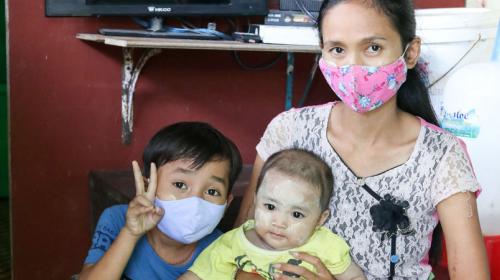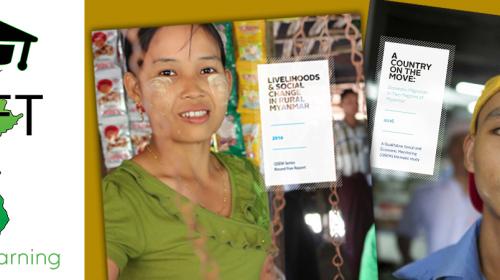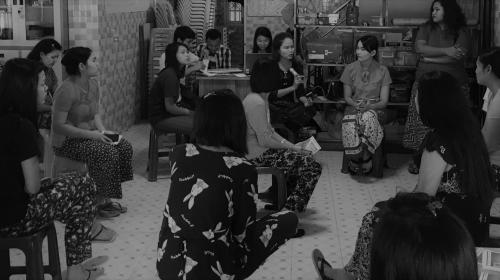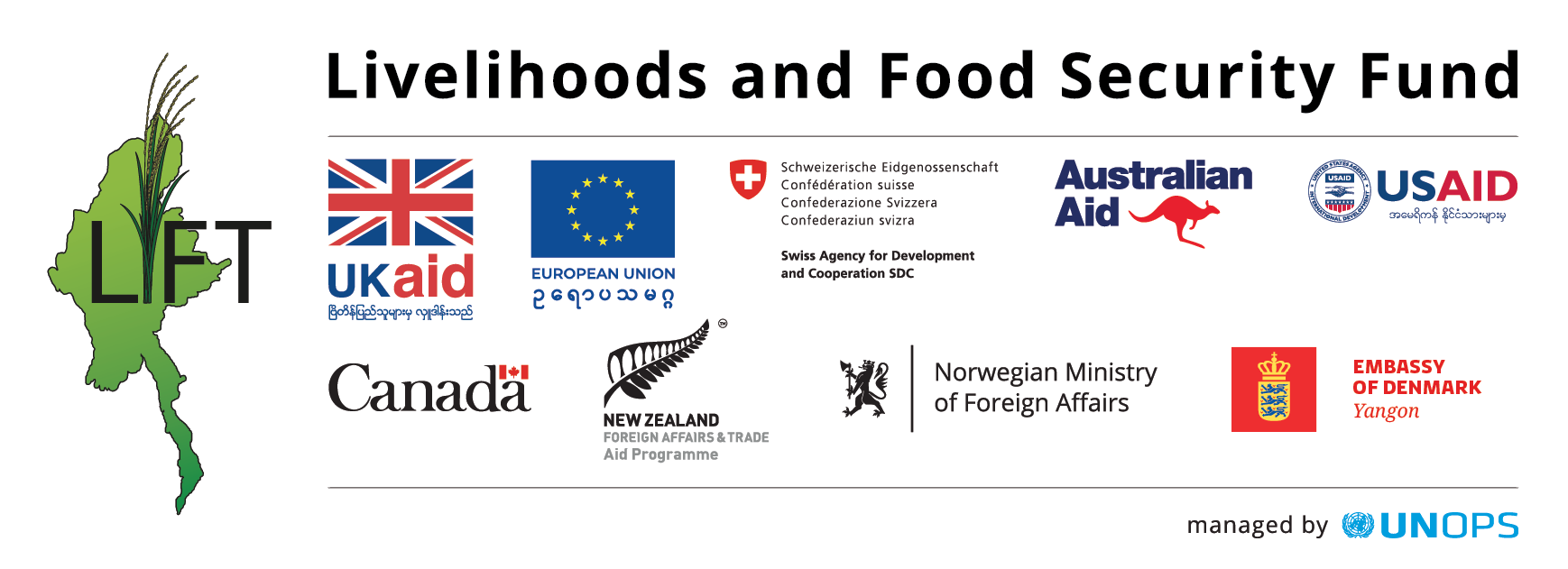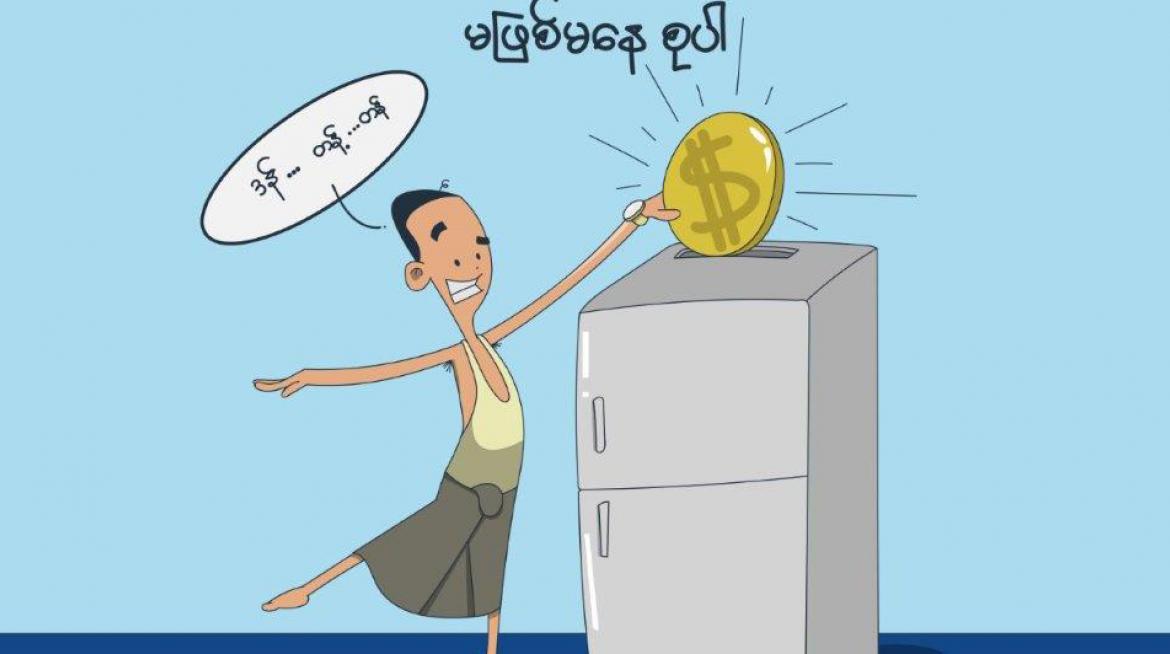
Ma Khin Mar Aye is a clothes vendor living in Yangon. A few years back, she started saving 1,000 kyats a day from her earnings. Eventually, she was able to open her own shop. She now sells 50 items of clothing every day, and as she gradually attracts more customers, she hopes to increase her daily sales to 100 to 200 pieces.
“We don’t tell our audience about how they can be in the top ten richest people in Myanmar,” says Yan Htaik Seng, Digital Manager at BBC Media Action Myanmar, “we tell them the story of a street vendor who saved 1,000 kyats a day to open a shop.”
Yay Kyi Yar (“Towards clearer waters”) is a radio, television and digital media programme that BBC Media Action has been implementing in Myanmar since 2016 with support from the Livelihoods and Food Security Fund. It promotes balanced and grounded media coverage of migration and financial management issues with the aim of actively engaging current and potential migrants and their communities. Based on their real-life experiences, the programme features a mix of factual information, entertainment, interviews, discussions, music and storytelling.
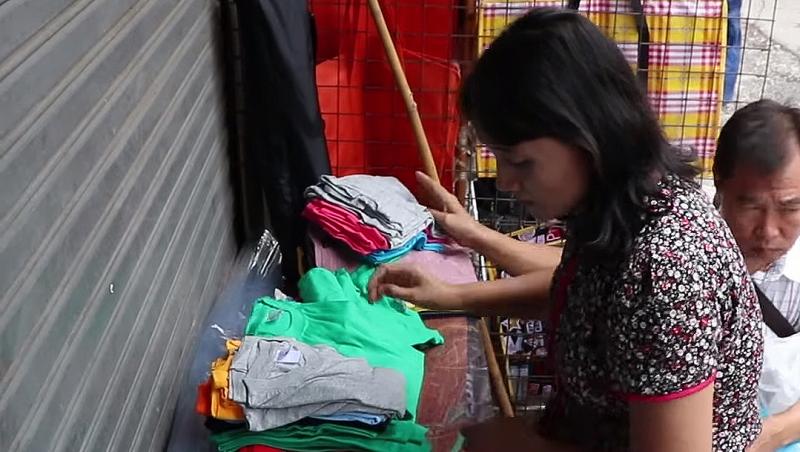 Ma Khin Mar Aye in her shop
Ma Khin Mar Aye in her shop
At present, as many as one in four people in Myanmar is a migrant, with people migrating both inside the country and abroad. Yet, as pointed out by Ujjwal Maitra, Senior Project Manager at BBC Media Action Myanmar, “media coverage of migration is typically limited and often sensational and negative, even though migration is a reality for a large part of the population, and deserves proportionate and balanced coverage by the media.”
According to the World Bank, an estimated USD 2.8 billion was remitted by international migrants in 2018, which does not include the billions more remitted through informal channels. A study by UNCDF estimated that the real remittance account may be closer to USD 10.8 billion. A large share of Myanmar families depends on the money provided by remittances to make ends meet, although few are able to invest them in order to improve their long-term welfare. Returning migrants therefore often end up migrating again once their money is spent and are unable to find livelihoods in their hometowns. This vicious circle is hard to break as money is a typically controversial topic of conversation. Yan Htaik Seng traces this back to the fact that “many people in Myanmar attribute their financial status to fate”; in that their wealth is pre-determined rather than based upon conscientious investments, hard work or perseverance.
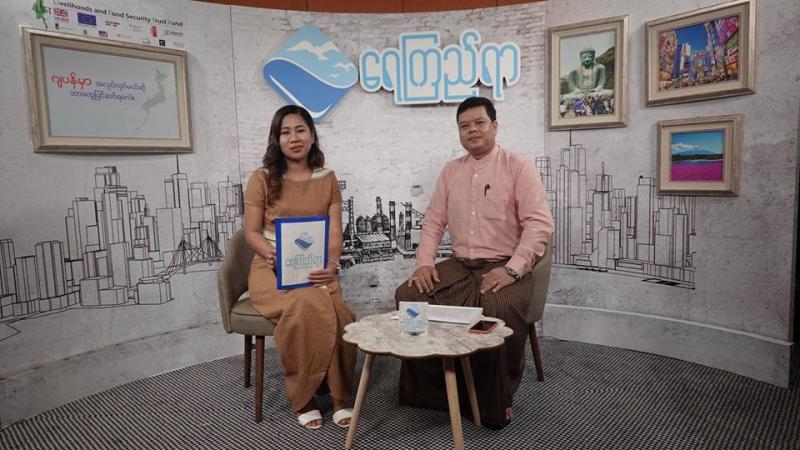 Yay Kyi Yar in the works
Yay Kyi Yar in the works
Yay Kyi Yar addresses such issues by informing and educating people through open debates about migration and money. One of the programme’s strategies is to highlight real success stories of people starting and running small businesses with limited funds. The social media post that has so far engaged the largest audience is the story of a migrant worker from Bago region who started his professional life in Thailand as a gardener. He strived to learn Thai language, and now runs a currency exchange and remittance service company in Thailand and Myanmar.
“Our stories are popular because they are relatable and believable,'' says Ujjwal Maitra. In 2018, the programme estimated that it attracted 3.2 million listeners, with 1.8 million listeners regularly tuning in at least twice a month. Around one in ten (11%) households with migrants (current, potential or returned) has listened to the show, and the programme reached almost a quarter (23%) of radio listeners in the country. The Yay Kyi Yar Facebook page further engages more than 700,000 followers with digital content.
The programme’s most notable character is the fictional U U Pike San, or ‘Mr Money’. U U Pike San has repeatedly been cited as the main appeal, and almost all listeners referred to him as their favourite part of the show. Through a slot in every episode, U U Pike San entertains listeners by spelling out one achievable action that can help people make the most out of their money. He uses a cheerful and humorous tone, tells jokes and speaks in a clear and simple manner that appeals to all audiences.
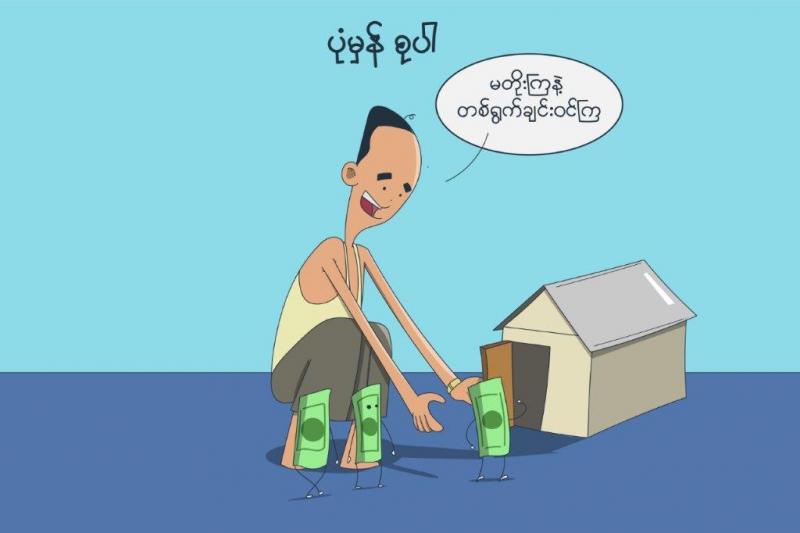 U U Pike San ('Mr Money')
U U Pike San ('Mr Money')
According to Ujjwal Maitra, “in such a short time span, media programmes rarely change people’s behaviours - they usually only affect people’s knowledge”. Nevertheless, Yay Kyi Yar has proven to have a surprisingly significant effect on listeners’ spending habits.
In fact, through quantitative and qualitative evaluation, BBC Media Action found that more than half (57%) of interviewed regular listeners had managed their money differently as a result of the programme. Such changes occurred most often because of practical tips given by U U Pike San on budgeting, reducing expenditure and differentiating between wants and needs. For example, listeners said they learnt different ways of saving that they were able to put into practice.
A male listener from Magway reflected: “I was not aware of financial management in the past. When listening to U U Pike San, I think he gave useful tips. Between need and want, people mostly buy what they want; they don’t want to buy what they need. They should however prioritise their needs.”
Yay Kyi Yar has also delivered a series of country profiles to help their audience take appropriate measures before and during migration. The series covers cultural differences, migration processes and procedures, necessary documentation, fees, salaries, living costs and working conditions.
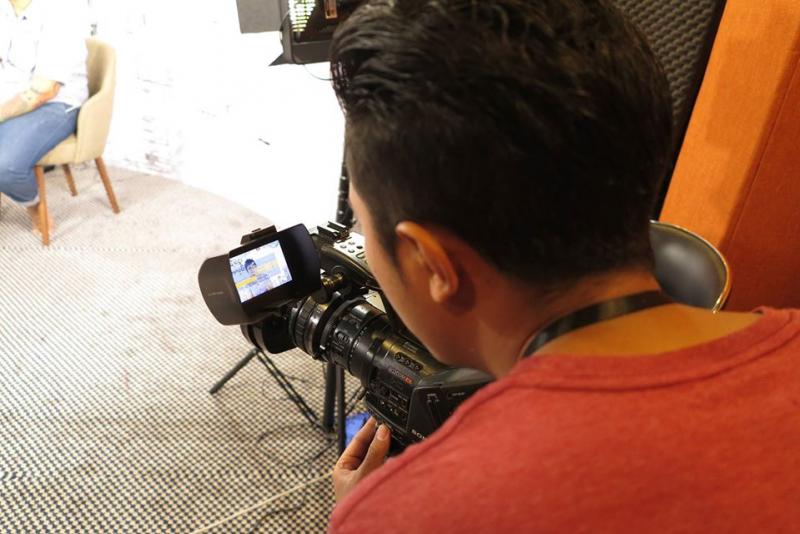 Yay Kyi Yar in the works
Yay Kyi Yar in the works
A female migrant listener in Yangon sees the value of this: “It is important to be familiar with the information from Yay Kyi Yar because it helps reduce and prevent risks. It is important to know more about migration so as not to be trafficked or exploited.”
Through the programme’s focus on migration and money matters, BBC Media Action is working to promote long-term change by giving people the confidence they need to seek out, acquire, and ultimately put knowledge into action.
“Positive transformation through communication interventions is a process, a relatively slow one. But its effects are long term, sustainable and span generations - every transformed person can pass on new positive behaviour to the next generations,” says Ujjwal Maitra, “so if communication-based initiatives like Yay Kyi Yar are allowed time, we will see meaningful and lasting positive changes.”
In the next phase, BBC Media Action will build on lessons learnt during the last two years of implementation for Yay Kyi Yar. With additional funding from LIFT, the project will expand its focus on decent work and labour migration through 11 episodes of a television show and media capacity development.
Writer: Sandra Vedeld
Photo credits: BBC Media Action Myanmar

